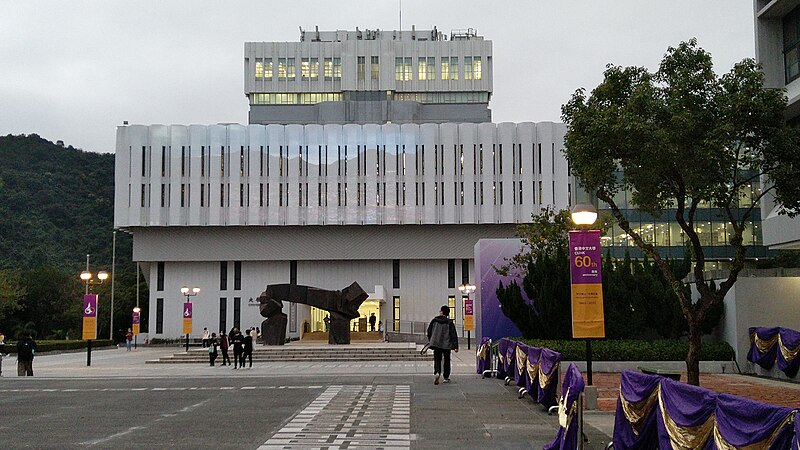
Thammasat University students interested in education, gender studies, political science, social work, and related subjects may find it useful to participate in a free 31 October Zoom webinar on Toward LGBTQ+ Inclusive Campus Environments: Understanding and Affirming Sexual and Gender Diversity.
The event, on Tuesday, 31 October 2023 at noon Bangkok time, is organized by the Equal Opportunity Unit, The University of Hong Kong (HKU).
The TU Library collection includes several books about gender diversity and education.
The speaker will be Associate Professor Randolph Chan who teaches in the Department of Social Work at The Chinese University of Hong Kong.
Students are invited to register for the event at this link:
https://hkuems1.hku.hk/hkuems/ec_regform.aspx?guest=Y&UEID=90577
With any questions or for further information, please write to
jozakot@hku.hk
The event website notes:
Abstract
The lesbian, gay, bisexual, transgender, and queer (LGBTQ+) community encompasses a wide spectrum of identities and experiences. This talk will delve into the unique challenges and difficulties faced by LGBTQ+ students and recommend practical strategies for promoting the acceptance and inclusion of LGBTQ+ students. It will pave the way for meaningful conversations and actions that foster a more affirming campus environment.
The Chinese University of Hong Kong website offers information about an Individual Award (Early Career Research Excellence Award) presented to Associate Professor Chan:
Dr Randolph CHAN Chun-ho
Assistant Professor, Department of Special Education and Counselling
Dr Randolph CHAN’s research interests focus on the mental health and well-being of young people and socially marginalized populations, particularly sexual and gender minorities.
As Principal Investigator, Dr Chan secured General Research Fund (GRF) and Early Career Scheme (ECS) funding from the Research Grants Council in the past three years. His research has made a significant theoretical contribution towards understanding the conditions that perpetuate discrimination against and the marginalization of sexual and gender minority youth. Dr Chan also received a grant from the AIDS Trust Fund of the Department of Health of the HKSAR Government to conduct research on the mental health of people living with HIV. […]
In an article published last year in the International Journal of STEM Education, A social cognitive perspective on gender disparities in self-efficacy, interest, and aspirations in science, technology, engineering, and mathematics (STEM): the influence of cultural and gender norms, Associate Professor Chan observed:
The underrepresentation of women in science, technology, engineering, and mathematics (STEM) fields is well documented in developed countries, and yet public discussion of gender disparities in STEM in China is still in its nascent stage. Endorsement of traditional gender role beliefs and conformity to social norms are pertinent to Chinese culture, which may even exacerbate the gender disparities in STEM engagement. Grounded in social cognitive career theory, the present study drew on a national sample of secondary school students (N = 3020) in China to estimate gender disparities in self-efficacy, interest, and aspirations in STEM and examine how cultural and gender norms influence STEM engagement.
Results
The proposed sequential mediation model was supported, in which girls were more likely to show lower levels of self-efficacy than boys; this was associated with lower interest in STEM and lower motivation to pursue STEM careers. The results also supported the moderating effect of traditional gender role beliefs and found that gender differences in self-efficacy, interest, and aspirations in STEM were more apparent among students who strongly endorsed stereotypical views of male and female roles.
Conclusions
The findings provide important implications for efforts to improve girls’ access to STEM education through curriculum enrichment and out-of-school time programs to bridge the gender gap in STEM. Access to female role models and gender-responsive pedagogy is also essential to boost girls’ self-efficacy in STEM and eradicate traditional gender role beliefs among all students. […]

Practical implications
The findings from this first-known study of how gender and cultural norms influence gender disparities in STEM in China provide evidence supporting the need for STEM education for girls. As the present study shows, low self-efficacy is likely to cause girls to lose interest in STEM. It is imperative to facilitate the development of spatial abilities, critical thinking skills, and problem-solving skills in primary education, because these skills are essential to boosting girls’ self-confidence and abilities in STEM later in their educational and career trajectories. This can be done by introducing a thorough revamp of the school curriculum and offering out-of-school time programs (e.g., after-school supplementary classes, summer schools, and enrichment programs) to bridge the STEM achievement gender gap (Young et al., 2016). Teachers should also build a positive and safe STEM learning environment, where girls feel valued and are encouraged to seek support when they perceive that they are unable to accomplish a STEM-related task or that they are not as competent as boys in STEM classes (George, 2019). In addition, providing access to female STEM role models (e.g., female scientists, engineers, and STEM college students) through mentorship programs may be instrumental to inspiring girls by ensuring that they see a future for themselves in STEM fields and improving their self-efficacy and career aspirations in STEM (Drury et al., 2011).
Apart from fostering self-efficacy in STEM, it is also important to cultivate a gender-bias-free environment to eliminate gender disparities in STEM engagement. Gender-responsive pedagogy is the key to allowing all learners to actively participate in the classroom regardless of their gender (Aikman et al., 2005). First, traditional gender role beliefs should be explicitly addressed and included in the curriculum to debunk gender stereotypes and misconceptions among students. Teaching and learning materials may serve to reproduce systems of gender inequity; thus, teachers should review and ensure that their instructional materials show women and men taking on a wide variety of roles and responsibilities (e.g., both women and men are represented as scientists, engineers, and programmers) (Forum for African Women Educationalists, 2018). Moreover, teachers must identify and be aware of their gender biases in classroom interactions (e.g., praising boys more than girls for their performance on STEM tasks, not expecting girls to do well in mathematics and science, and assigning boys to be the leaders in STEM-related group work) (Sadker & Zittleman, 2007). Teachers should also ensure that gender-responsive language is used in the classroom and sensitize students to the gender stereotypical messages they receive in their daily lives. […]
Conclusions
Overall, the present study adds to growing evidence of gender disparities in self-efficacy, interest, and academic and career aspirations in STEM in China (Liu, 2018; Yang & Gao, 2019). The results showed that girls were less likely to perceive that they have the capabilities to do well in mathematical, scientific, and technical tasks than boys, which might make girls lose interest in STEM and subsequently lack motivation to pursue STEM as academic and career endeavors. The gender difference in STEM engagement was even more prominent among students who endorsed higher levels of traditional gender role beliefs. Efforts to improve girls’ access to STEM education through curriculum enrichment and out-of-school time programs are necessary to bridge the gender gap in STEM. Access to female role models and gender-responsive pedagogy is also needed to boost girls’ self-efficacy in STEM and eradicate traditional gender role beliefs among all students.

(All images courtesy of Wikimedia Commons)

